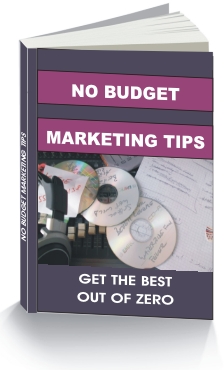Music and artificial intelligence, “AI”, has been all over the media for a while now, though noone really touched the downside of it, the bad impact it can (or will) have on musicians, publishers and labels. Many journalists – often with no knowledge about the music business – have gleefully pointed towards the enhancement we can all get from AI once we’re stuck with writer’s block. But hey, aren’t journalists next in line?
Whichever way you may look at it, AI will soon speed up not only the songwriting process, but music production as a whole. Please welcome the mass producer. If economics have tought us something then it is that with cheap mass production the price of the finished product goes down.
Yes, streaming sites don’t pay as much as we used to get from record sales. Next the internet is full of cheapo music libraries that sell finished tracks for a handful of dollars for worldwide use in all media without a time limit. Well, good news, with AI taking over the work soon enough for you, you will be able to mass-produce enough songs to meet your financial needs even at low “per unit” prices – given anyone buys. The bad news, however, is that you won’t stand a chance in the marketplace anymore as a traditional composer, musician and producer who takes pride in the hand-made do-it-all-yourself approach.
Well, okay, on the other side we have been “cheating” a lot already given digital plug-in solutions that replace drummers and even full orchestras. Same with pre-fabricated drum and percussion loops that otherwise would have cost us at least half a day to think up and record ourselves.
Just recently a young female singer has come up with a tool that lends her voice to any other vocal recording. Fast-forward you will be able to sound like Elvis, Aretha, Joe or Whitney at the press of a button – or maybe two. Sells more than your own annoying voice, huh?
Now there have been a few famous musicians including Sting as of recently who tried to weaken our worries about becoming obsolete, saying AI cannot replace human emotion. Well, let me ask you: who in the wide field of average music consumers actually cares? Do they care – or even know – that most of what they get served on the radio doesn’t even feature real instruments played by humans? Will an advertising agency care about the emotional phrasing of a human’s fingers on a piano when they can get a sterile version for a tiny fraction of the price and thus save big on their budget?
Online music library Audiosparx has just teamed up with Stability AI, offering its catalog of music for training purposes so that Stability AI may develop artificial music faster and more easily in the future. I personally asked them why they were feeding their musicians to the beast that might soon replace them. Their reply was rather generic, saying they’d rather jump onto the train and make their musicians a few cents rather than getting rolled over by it.
Well, I remember that I had warned about Streaming replacing not just radio but record sales as well. Many fellow musicians who are now working day jobs again have given me the finger for it. I guess I told them so.
In a recently published article by Music Business Weekly more than 100 CEOs including that of ChatGPT have warned about he impact of AI and that many jobs will surely become extinct if we don’t keep it under control. But yes, a few (or many) uncreative persons will be happy to use it to finally come up with a song idea or two – or with a cool pickup line for their next bar visit.
Copyright seems to be a thing holding the implementation of AI in music back. AI is programmed to “take” from existing content to learn. So it might “steal” short musical ideas from a number of songs, re-assemble them and create one new song out of maybe five or six. Even if lawsuits for copyright infringement may be looming – who will notice anyway? Digital content provider TuneCore said they were working on a system to detect music 100% created by AI during the upload process. Well, but what if only 80% are based on AI? Will the system fail? How is it going to find out if a composer has used AI to create lyrical ideas or suggest an alternate chord progression?
Lots of gloomy predictions especially for musicians, but these are worries that should be addressed, especially the decline in price (value) that will come in connection with mass production, something that AI will definitely “inspire”. Of course, your digital distributor will soon tell you how great it is to release even more music with a little “viagra”…
Of course, there will be small but dedicated market niches. They already exist and may become even stronger – hopefully. Music for people who would also buy groceries at local markets or have their clothes sewn by a tailor in town. But how many are there actually?
If you are interested in marketing yourself within a dedicated market niche, I’ve written an eBook called “Kick Ass Music Marketing” that explains a full DIY marketing campaign that has worked for me with six DIY record releases (which all generated a profit). And yes, I’m talking high-priced product, aka physical records. Check it out…




